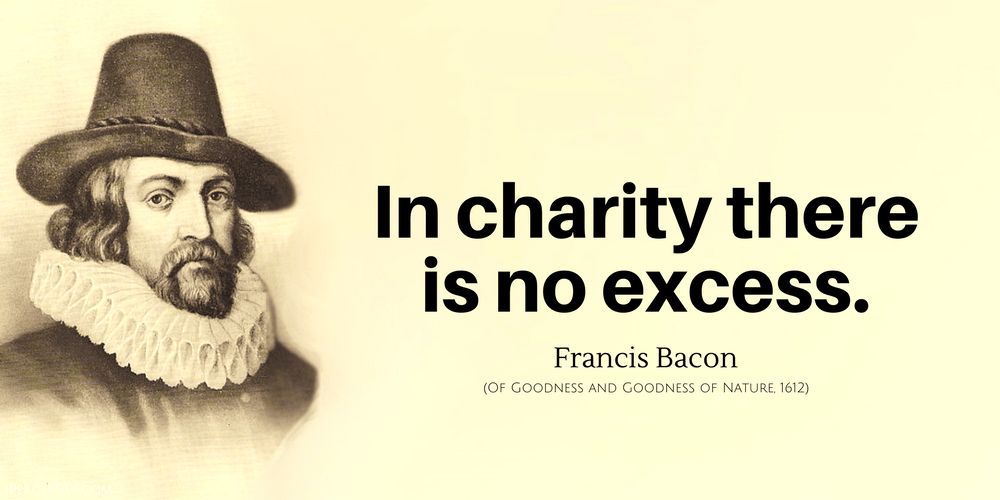Francis Bacon Quotes

In charity there is no excess.
Truth will sooner come out from error than from confusion.
There is nothing makes a man suspect much, more than to know little.
Praise from the common people is generally false, and rather follows the vain than the virtuous.
It is a strange desire, to seek power, and to lose liberty; or to seek power over others, and to lose power over a man's self.'
A man that studieth revenge keeps his own wounds green.
Age appears to be best in four things—old wood best to burn, old wine to drink, old friends to trust, and old authors to read.'
The desire of power in excess caused the angels to fall; the desire of knowledge in excess caused man to fall.
If we do not maintain Justice, Justice will not maintain us.
For all knowledge and wonder (which is the seed of knowledge) is an impression of pleasure in itself.
Croesus said to Cambyses; That peace was better than war; because in peace the sons buried their fathers, but in wars the fathers buried their sons.
No pleasure is comparable to the standing upon the vantage-ground of truth.
Certainly, it is heaven upon earth, to have a man's mind move in charity, rest in providence, and turn upon the poles of truth.
The joys of parents are secret, and so are their griefs and fears.
They cannot utter the one; nor they will not utter the other.
For a crowd is not company; and faces are but a gallery of pictures; and talk but a tinkling cymbal, where there is no love.
Science is the labor and handicraft of the mind.
There is a difference between happiness and wisdom: he that thinks himself the happiest is really so; but he that thinks himself the wisest is generally the greatest fool.
Men’s thoughts are much according to their inclination, their discourse and speeches according to their learning and infused opinions.
Whosoever is delighted in solitude is either a wild beast or a god.
The worst solitude is to be destitute of sincere friendship.
I do not believe that any man fears to be dead, but only the stroke of death.
In taking revenge, a man is but even with his enemy; but in passing it over, he is superior.
Truth is a naked and open daylight, that doth not shew the masks and mummeries and triumphs of the world, half so stately and daintily as candlelights.
In nature things move violently to their place, and calmly in their place.
A man that hath no virtue in himself, ever envieth virtue in others. For men's minds, will either feed upon their own good, or upon others' evil.
Young men are fitter to invent than to judge, fitter for execution than for counsel, and fitter for new projects than for settled business.
Riches are for spending.
He of whom many are afraid ought to fear many.
It is not possible to run a course aright when the goal itself has not been rightly placed.
Virtue is like a rich stone, best plain set.


